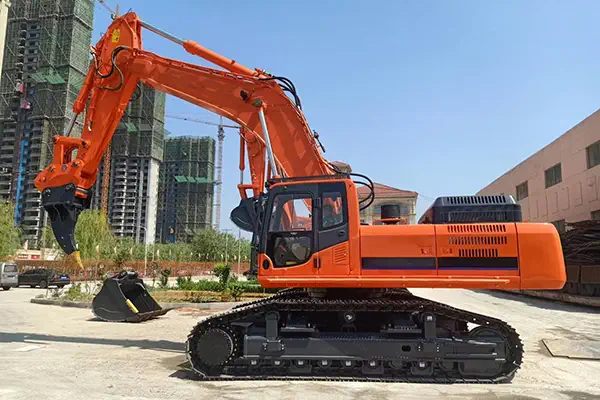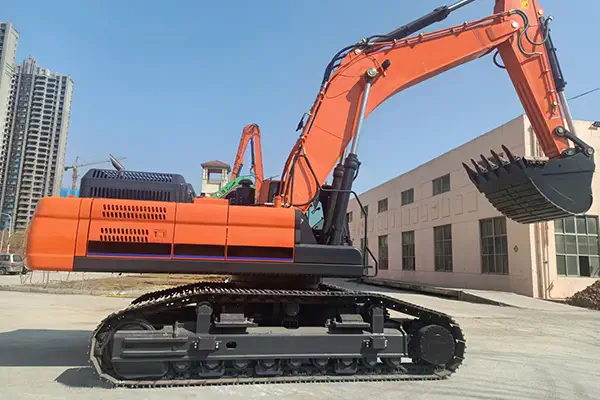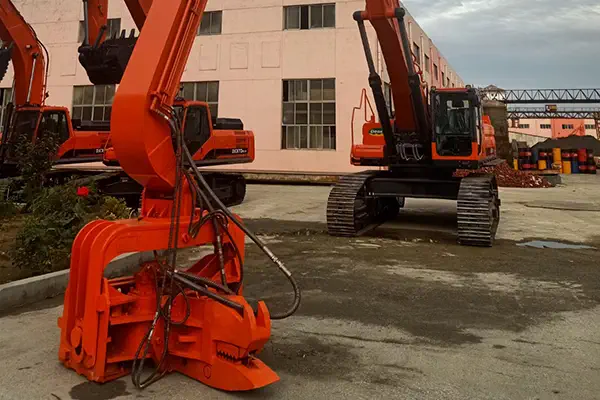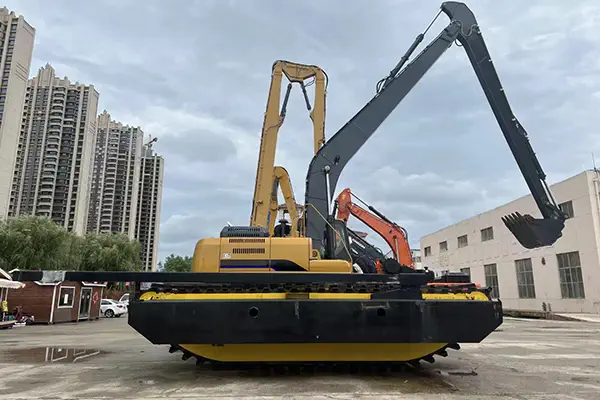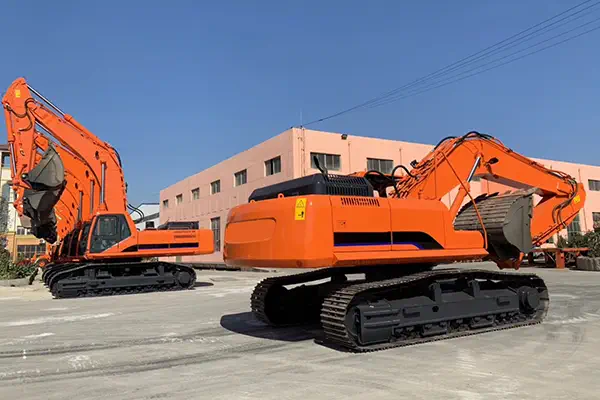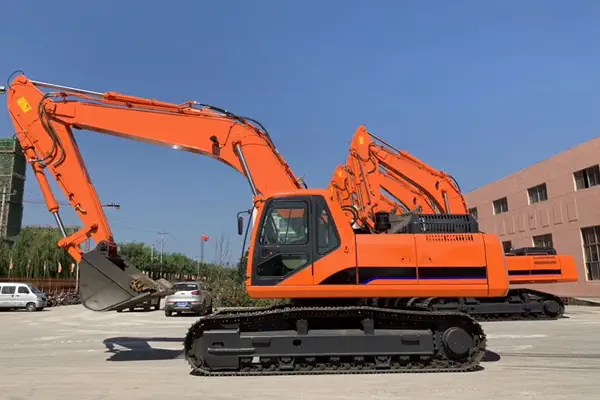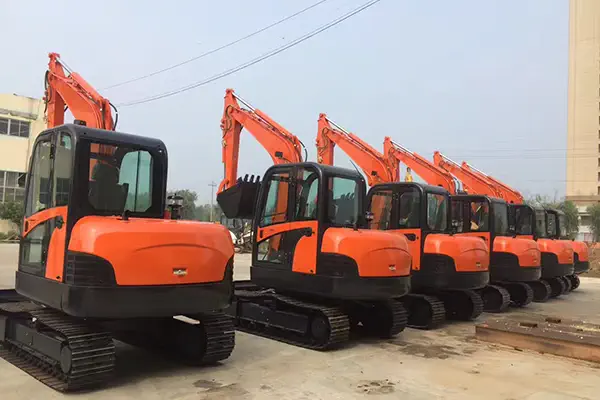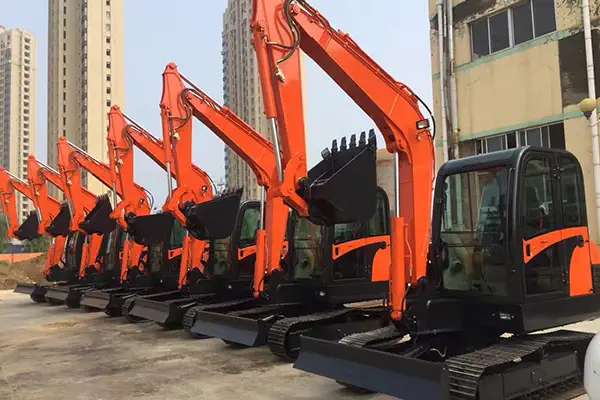
Excavator
We provide various types of Excavators. If you need customization, please feel free to contact us.
Know More About Excavator
An excavator, also known as a digger or mechanical shovel, is a heavy construction machine commonly used in various applications, such as excavation, earthmoving, demolition, and construction. It typically consists of a boom, dipper (or stick), bucket, and a rotating cab mounted on a set of tracks or wheels. Excavators are versatile and widely used in the construction and mining industries for tasks like digging trenches, foundations, and holes, as well as handling materials.
- Excavator Types: There are different types of excavators, including standard excavators with tracks, wheel excavators, and mini excavators for smaller tasks. Additionally, long-reach excavators are used for deep and large-scale excavation work.
- Applications: Excavators are versatile machines used in various industries, including construction, mining, forestry, agriculture, and more. They are commonly used for digging trenches, foundations, and holes, as well as moving large quantities of earth or materials.
- Hydraulic Systems: Excavators use hydraulic systems to control the movement of the arm, stick, and bucket. This enables precise and efficient digging and lifting operations.
- Size and Capacity: Excavators come in various sizes, ranging from compact mini excavators with a few tons of operating weight to larger machines that can weigh over 100 tons. The size determines the machine's capacity and its ability to handle heavy-duty tasks.
- Maintenance: Regular maintenance is crucial to keep excavators in good working condition. This includes checking and servicing hydraulic systems, engine, tracks or wheels, and other components.
Technical specs comparison of Excavator
| Specification | Unit | 60 | 150 | 230 | 300 | 400 | 520 |
| Machine weight | kg | 5950 | 14800 | 22300 | 29500 | 37800 | 48900 |
| Machine size | mm | 5855*1880*2580 | 7662*2590*2980 | 9600*2980*3005 | 10055*3200*3697 | 11380*3350*3720 | 12230*3900*3705 |
| Digging depth | mm | 3820 | 5625 | 6592 | 6810 | 7135 | 7795 |
| Engine | / | Yanmar | Commins | ||||
| Engine power | kw | 35.5 | 73 | 128 | 168 | 214 | 238 |
Excavator application area
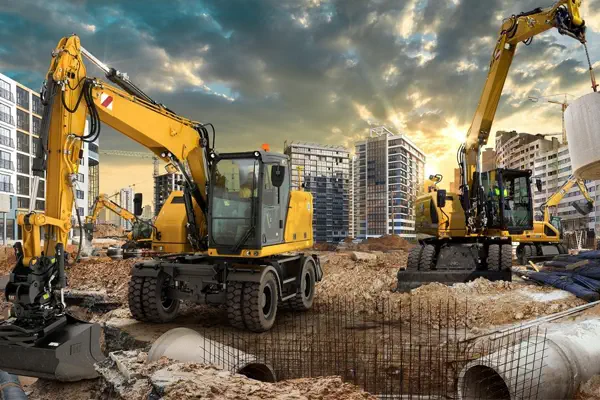
Construction
- Foundation Excavation: Excavators are commonly used to dig trenches for building foundations. They can quickly and accurately create the required depth and dimensions for the footings and basements of structures.
- Site Preparation: Before construction begins, the site often requires leveling, clearing, and earthmoving. Excavators are used to remove obstacles, clear debris, and shape the site for further construction.
- Trenching: Excavators are essential for digging trenches for utilities like water, gas, electrical lines, and sewage systems. They ensure precise and efficient trench excavation, which is crucial for the installation of these utilities.
- Grading: Excavators equipped with grading attachments can be used to level and grade the construction site. They ensure that the ground is even and properly prepared for the construction of roads, parking lots, and other surfaces.
Mining
- Open-Pit Mining: Excavators are commonly used in open-pit mining operations for removing overburden (the material covering valuable mineral deposits) and extracting valuable minerals. They can handle large volumes of material efficiently.
- Quarrying: Excavators are employed in quarries to extract materials like stone, sand, and gravel. They can efficiently load, transport, and stockpile these materials for further processing or transportation.
- Blasting Assistance: Excavators are used to prepare the ground for blasting by creating benches and ramps. They also help clear debris after blasting, making way for access and further excavation.
- Ore Extraction: In underground mining operations, excavators can be used to extract ore from shafts and tunnels. They work in confined spaces and transport the ore to the surface.
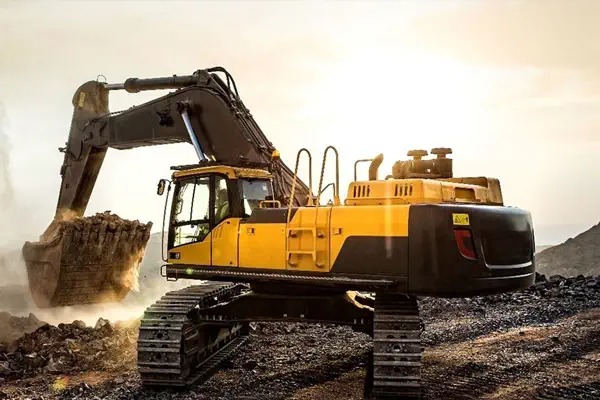
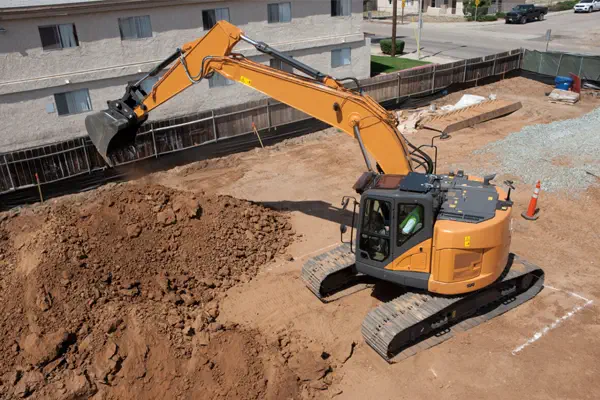
Earthmoving
- Digging and Excavation: The primary function of excavators is digging and excavation. They are used to remove soil, rock, and debris to create trenches, foundations, and excavate for various construction projects.
- Foundation and Trench Work: Excavators are crucial for digging trenches for utilities such as water lines, sewer systems, and electrical cables. They also excavate foundations for buildings and structures.
- Demolition: Excavators with specialized attachments like hydraulic breakers or shears are used in demolishing buildings, concrete structures, and removing debris from demolition sites.
- Material Handling: Excavators load and unload construction materials, debris, and equipment. They can also handle and place large pipes, concrete blocks, and other heavy objects.
Demolition
- Structural Demolition: Excavators are employed to dismantle buildings, bridges, and other structures. They use specialized attachments like hydraulic breakers, shears, and grapples to disassemble and remove materials.
- Concrete and Masonry Demolition: For breaking and removing concrete walls, foundations, and pavement, excavators equipped with hydraulic hammers are the go-to machines. They efficiently crush and remove concrete and masonry debris.
- Interior Demolition: In interior demolition projects, such as renovating buildings, excavators with smaller profiles and attachments like claws are used to remove walls, ceilings, and partitions.
- High-Rise Demolition: For tall structures, long-reach excavators with extended arms and attachments are employed to safely and efficiently bring down multistory buildings.
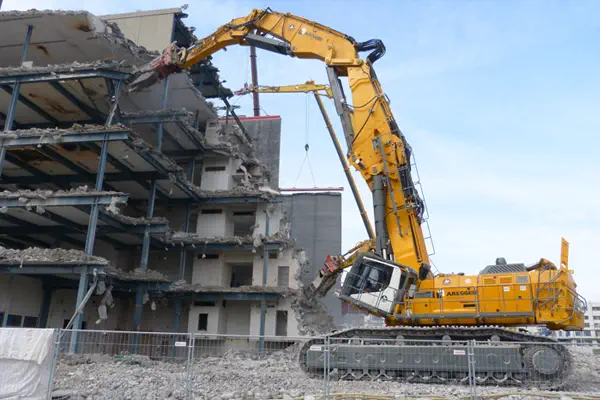
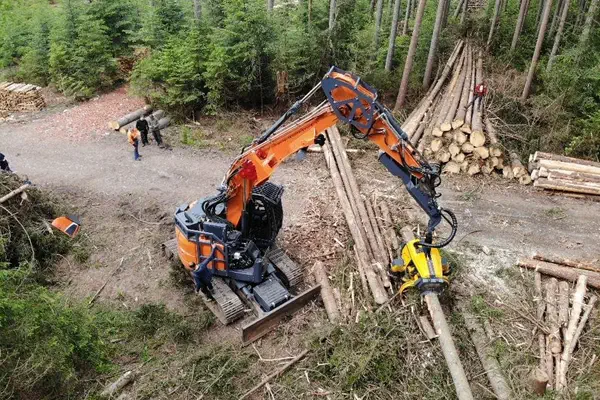
Forestry
- Land Clearing: Excavators are used to clear land for forestry projects, such as creating new access roads, clearing pathways for power lines, or preparing areas for reforestation. They can efficiently remove trees, shrubs, and underbrush.
- Stump Removal: After trees are harvested, excavators equipped with specialized attachments, such as stump grinders or shears, can remove tree stumps and roots, allowing the land to be reused for other purposes or replanted.
- Ditching and Drainage: Excavators help create ditches and drainage systems in forested areas to manage water flow, prevent erosion, and maintain the health of the forest ecosystem.
- Harvesting Support: While not the primary machines for tree harvesting, excavators can assist in felling trees or processing harvested logs by moving and loading them onto trucks or processing equipment.
Excavator Purchase Guide
When purchasing an excavator, it’s essential to consider various factors to ensure that you choose the right machine for your specific needs. Here’s a guide to help you make an informed excavator purchase:
- Determine Your Needs: Identify the primary tasks you need the excavator for, such as digging, lifting, or material handling. Consider the type of terrain and working conditions, whether it's construction sites, mining operations, or forestry projects.
- Size and Capacity: Choose the right excavator size and capacity to match your requirements. Mini, compact, and standard excavators are available, each with different capabilities.
- Hydraulic System: Evaluate the hydraulic system's power and efficiency, as it directly impacts the machine's performance. Look for features like load-sensing hydraulics for better control.
- Attachments and Versatility: Consider the availability of attachments and their compatibility with the excavator. Attachments can extend the machine's capabilities, allowing it to perform a wide range of tasks.
- Maintenance and Support: Check the availability of local dealers and service centers. A strong support network is crucial for maintenance, repairs, and spare parts.
- Fuel Efficiency: Opt for fuel-efficient models to reduce operating costs and minimize environmental impact.
- Warranty and Service Contracts: - Inquire about warranty terms and service contracts to safeguard your investment.
- Resale Value: - Some excavator brands and models hold their value better than others. Research which machines have a strong resale value.
- Budget Considerations: - Set a clear budget and stick to it. Factor in not only the purchase cost but also operating expenses, including fuel, maintenance, and insurance.
- Operator Comfort and Safety: Consider the operator's comfort, safety, and visibility in the cabin. A comfortable operator is likely to be more productive.
If you have questions when purchasing a Excavator or would like to learn more about the performance of our Excavator equipment,
please click the button below to contact us.
FAQ About Excavator
Excavators come in various types, including standard excavators, mini excavators, compact excavators, and long-reach excavators, each designed for specific applications.
Excavators are used in construction, mining, forestry, demolition, agriculture, and various other industries for tasks like digging trenches, loading trucks, excavating foundations, and more.
Key components of an excavator include the boom, stick (or arm), bucket, hydraulic system, engine, cab, and undercarriage.
Regular maintenance includes cleaning, checking fluid levels, greasing moving parts, inspecting hydraulic systems, and following the manufacturer’s maintenance schedule.
Yes, excavators are versatile machines with attachment options like buckets, breakers, augers, grapples, and more, which allow them to perform various tasks.
The lifespan of an excavator depends on factors like brand, maintenance, and usage. Well-maintained excavators can last 10,000 to 20,000 hours or more.
Some excavators are equipped for underwater work, such as dredging or marine construction, with special attachments and sealing.
Have Anything To Ask Us?
Please fill in your email in the form and we’ll get back to assist you soon!
- Will contact you within 1 hour.
- Don't worry, we hate spam too!
